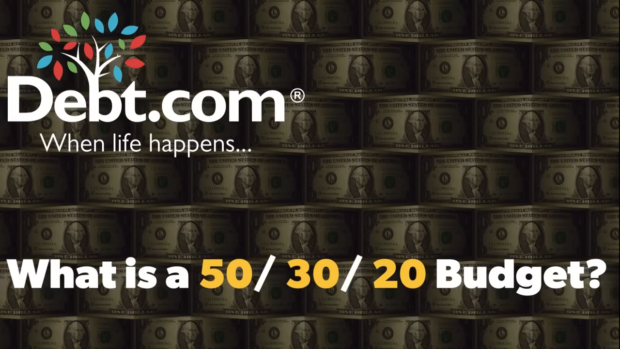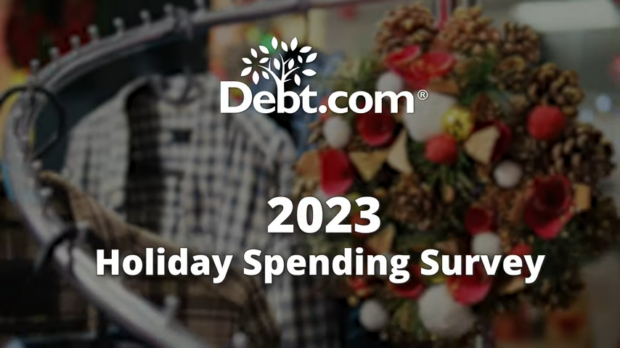Are you tired of living paycheck to paycheck? Do you find yourself constantly stressed about money and feeling like you never have enough? If you have trouble covering monthly bills and other personal finance challenges, you’re not alone. Many people struggle with financial difficulties and finding ways to save money. One popular approach to combat this issue is a no spend challenge or a spending fast.
In a world filled with constant advertisements and temptations, it’s easy to fall into the trap of overspending and living beyond our means. However, a “no-spend challenge” can help individuals regain control over their finances.
What is a Spending Fast?
A spending fast, also known as a spending freeze or no-spend challenge, is a deliberate and temporary break from spending money on non-essential items or services. It involves refraining from purchasing unnecessary goods or services for a set period of time, typically ranging from a week to a month or longer. The goal is to create a mindful and intentional approach to spending, helping you gain control over your finances and develop healthier money habits. By adopting a spending fast, individuals aim to break the cycle of impulsive spending and develop a healthier relationship with money.
Benefits of a Spending Fast
A spending fast offers several compelling benefits for individuals seeking financial stability and freedom. Some key advantages include:
Debt Reduction and Savings
By refraining from non-essential spending, individuals can allocate more funds toward paying off debts and building savings. This disciplined approach enables them to make significant progress towards achieving their financial goals, putting you on a path towards financial security.
By redirecting your funds towards debt repayment during the challenge, you can make significant progress in reducing your debt burden. This can provide a sense of relief and motivate you to continue practicing responsible financial habits.
If you’re on a no-spend challenge for a month – or, once you get rolling, maybe even a few months – you’ll pay more attention to how much you charge on your credit card, hopefully charging less each month. Meanwhile, you may save anywhere from $100 to several hundred dollars a month or over time, which you can use to pay down existing credit card balances.
By eliminating non-essential spending, you can save a significant amount of money during the challenge. All that money you’re saving on your spending fast has to go somewhere, right? The money that would have been spent on impulse purchases can be allocated towards emergency savings or long-term financial goals.
Improved Financial Discipline
By actively abstaining from unnecessary spending, you will develop stronger financial discipline. The spending freeze challenges individuals to exercise self-control and resist impulsive buying behavior. It cultivates discipline, enabling individuals to develop healthier financial habits and reduce the temptation to overspend.
Increased Awareness of Spending Habits and Mindful Consumption
During a spending fast, you become more aware of your spending habits and patterns. This heightened awareness can lead to a better understanding of your financial situation, enabling you to make more informed decisions about future purchases. The challenge forces you to differentiate between wants and needs, helping you prioritize your spending on essential items and savings.
Most of us can easily spend anywhere from at least $20 to more than $50 a day without giving those purchases a thought. However, if you’re on a no-spend challenge, you’ll notice every dollar spent. And when you set your spending fast goals, you’ll probably find several expenses or daily purchases you can do without to save money.
Even when you’re watching your spending, you might still get the urge to buy a new pair of shoes or an unnecessary electronic device next time you’re bored or feeling blue. Now, however, you’re more likely to resist so you can stick to your spending fast. And next time emotions make you want to buy things, maybe you’ll go for a walk, call a friend to catch up, or work out instead.
Tip: To become even more conscious of spending habits, pay with cash as often as possible so you actually see the money leaving your hand rather than making a painless purchase with a credit or debit card.
Enhanced Financial Mindset
Through a spending fast, individuals develop a positive and proactive mindset towards money. They gain a deeper understanding of the value of their hard-earned income, leading to more mindful spending choices in the long run. You learn to appreciate the things you already have, rather than constantly seeking new purchases for momentary satisfaction. This shift in mindset promotes gratitude and contentment.
Assessing the Limitations of a Spending Fast
While a spending fast can be a valuable tool for improving your finances, it’s important to acknowledge its limitations:
Temporary Solution
A spending fast is a temporary measure that offers short-term benefits. While it can provide immediate relief and set the stage for positive change, it’s crucial to develop sustainable long-term financial habits beyond the duration of the spending fast.
Limited Scope
A spending fast primarily focuses on controlling discretionary spending. It may not address deeper financial issues such as structural budget imbalances, inadequate income, or long-term financial planning. These aspects may require additional attention and strategies to address effectively.
Individual Discipline and Commitment
The success of a spending fast heavily relies on an individual’s discipline and commitment to adhere to the set guidelines. It can be challenging to resist temptations and social pressures to spend, requiring a strong resolve to stay on track.
How to Start a Spending Fast
Before embarking on a spending fast, it is crucial to create a well-defined plan to maximize its effectiveness. Here are some key steps to consider:
Set Clear Goals: Determine why you want to take on the challenge and what you hope to achieve. Whether it’s paying off debt, saving for a specific goal, or breaking unhealthy spending habits, having a purpose will help you stay motivated throughout the process.
Setting a long list of new financial goals and guidelines can be intimidating, so don’t put too much pressure on yourself with spending fast restrictions. For example, instead of vowing for a lifetime of better financial habits right now, you could commit to 21 or 30 days of spending less.
Then write down ways you can save on daily and monthly spending. Maybe you could take your lunch to work daily instead of dining out. You might pause or cancel streaming subscriptions. Page through the grocery circular for sale items before you shop. Cut back on utility usage or run several errands in one trip, for example.
Define the Duration: Decide how long you want your spending fast to last. It can be as short as a week or extend to several months. Choose a timeframe that is realistic and suits your financial circumstances.
Analyze Expenses and Prioritize: Review your current expenses and identify non-essential items that can be temporarily eliminated. Prioritize essential expenses such as food, housing, utilities, and transportation.
Establish Accountability Measures: Find an accountability partner or join a community of individuals practicing a spending fast. Sharing experiences, challenges, and successes can provide invaluable support throughout the journey.
Prepare for Unforeseen Expenses: While a spending fast aims to minimize discretionary spending, it’s important to anticipate and plan for unexpected expenses or emergencies. Allocate a small portion of your budget for such situations.
Identify Exceptions: While the goal of a no-spend challenge is to limit non-essential spending, it’s essential to identify exceptions. Determine specific items or services that are necessary for your well-being or commitments. This way, you can plan and budget for these exceptions accordingly.
Tips for a Successful Spending Fast
Implementing a spending fast can be challenging, but with the right strategies, you can increase your chances of success. Here are some tips to help you navigate the process:
Create a Budget: Develop a budget that outlines your essential expenses, such as bills, groceries, and transportation. Be realistic about your needs and allocate the remaining funds towards debt repayment and savings.
Before you begin your spending fast, it’s a good idea to create a monthly budget so you know where you stand and where to cut. If you’re not up to that task yet, go ahead and start without a budget, focusing mainly on the list of daily and monthly expenses you can cut during the spending fast.
Once you see how much money you can save each month, create a monthly budget and some concrete goals such as depositing the amount you would have otherwise spent in a savings account, retirement plan.
Track Your Expenses: Keep a record of your expenses during the no-spend challenge. This will help you identify areas where you tend to overspend and make adjustments accordingly. Use budgeting apps or spreadsheets to simplify the tracking process.
Practice Mindful Spending: Before making any purchase, ask yourself if it aligns with your goals and values. Practice delayed gratification by waiting for a certain period before buying non-essential items, giving yourself time to evaluate their importance.
Find Free or Low-Cost Activities: Engage in activities that don’t require spending money. Look for free community events, explore nature, or spend time with loved ones. Focus on experiences rather than material possessions.
Embrace Minimalism: A spending fast often goes hand in hand with embracing minimalism. Take this opportunity to declutter your living space, donate unused items, and simplify your life.
Seek Support: Enlist the support of family, friends, or online communities who share similar goals. Having a support system can provide encouragement, accountability, and helpful tips throughout your spending fast journey.
Practice Self-Care: Engaging in a spending fast may bring about feelings of deprivation or frustration. It’s important to prioritize self-care during this time. Find alternative ways to reward and treat yourself that don’t involve spending money.
Common Obstacles and How to Overcome Them
Embarking on a spending fast may present various challenges along the way. It’s important to be prepared and adopt strategies to overcome them effectively:
Social Pressures: Social events and peer pressure can tempt you to spend unnecessarily. Communicate your goals with friends and family, explaining your commitment to the spending fast. Seek alternative ways to participate without compromising your financial objectives.
Dealing with FOMO (Fear of Missing Out): The fear of missing out on social events or exciting experiences can be a challenge during a spending fast. Focus on finding alternative free or low-cost activities and remind yourself of your long-term goals.
Emotional Spending: Emotional triggers can lead to impulsive and unnecessary purchases. Identify your emotional spending patterns and find healthier outlets for managing stress or emotions, such as exercise, journaling, or engaging in hobbies.
Impatience: Patience is key during a spending fast. It’s essential to remind yourself of the long-term benefits and stay focused on your goals. Celebrate small milestones to stay motivated on your journey.
Temptations and Impulse Buys: Avoid situations that may trigger impulse purchases. Unsubscribe from marketing emails, limit your time in shopping areas, and remove saved payment information from online shopping platforms to minimize temptations.
Seeking Professional Advice
If you find yourself facing complex financial challenges or needing guidance on improving your overall financial situation, consider seeking advice from a financial professional. They can offer personalized insights, help you develop a tailored financial plan, and provide expertise to address your specific needs.
No matter what kind of debt you have, Debt.com can help you solve it.
Monitoring Progress and Celebrating Milestones
Regularly evaluate and track your progress throughout the spending fast. Review your spending habits, debt reduction, and savings growth. Use this information to make adjustments to your budget and celebrate milestones achieved.
Recognize and celebrate your achievements along the way. Reward yourself for sticking to your spending fast goals. However, be mindful that celebrations should align with your newfound financial discipline.
How a Spending Fast Can Change Your Relationship with Money
Engaging in a spending fast can have a profound impact on your relationship with money. It helps you develop a healthier perspective, fostering gratitude, and reducing impulsive spending. The habits and mindset cultivated during a spending fast can have a lasting effect on your financial well-being.
Long-Term Financial Transformation through a Spending Fast
A spending fast is not just a short-term solution but a transformative journey towards long-term financial health. The lessons learned during this period can shape future spending habits and cultivate a more mindful and sustainable approach to personal finance.
Finding Balance: Incorporating Sustainable Spending Habits
Once you have completed your spending fast, it’s essential to find a balance between financial discipline and enjoying the fruits of your labor. Incorporate sustainable spending habits that align with your goals and values, ensuring a healthy and fulfilling financial lifestyle.
The Psychological Impact of a Spending Fast
Beyond its financial benefits, a spending fast can have a significant positive impact on an individual’s psychological well-being. It fosters a sense of empowerment, reduces financial stress, and boosts self-confidence in one’s ability to manage money effectively.
Building a Supportive Community for Success
Joining or creating a supportive community of individuals who have embarked on a spending fast can enhance your chances of success. Sharing experiences, offering advice, and celebrating achievements together creates a network of support that keeps you motivated throughout your financial journey.
The Role of Mindfulness in Financial Decision-Making
Mindfulness plays a crucial role in financial decision-making. By practicing mindfulness, individuals can cultivate a greater awareness of their financial choices, make deliberate decisions, and avoid impulsive or unnecessary spending.
Reflecting on the Journey: Lessons Learned from a Spending Fast
Take the time to reflect on your spending fast journey and the lessons learned along the way. Identify areas of personal growth, acknowledge your achievements, and use these insights to shape your future financial decisions.
Strategies to Maintain Financial Health after the Spending Fast
After completing a spending fast, it’s crucial to maintain the positive financial habits you’ve developed. Here are some strategies to help you maintain financial health:
- Continue budgeting and tracking expenses
- Prioritize saving and debt repayment
- Practice mindful spending
- Regularly review and adjust financial goals
- Seek ongoing support from accountability partners or financial resources
FAQs
Yes, it’s essential to define exceptions for necessary items or services. However, it’s crucial to differentiate between wants and needs to maintain the integrity of the spending fast.
The duration of a spending fast is subjective and depends on individual goals and financial circumstances. It can range from a week to several months.
Yes, a spending fast can be an effective strategy for saving money. By eliminating unnecessary expenses, you can allocate more funds towards savings or debt repayment.
Slip-ups can happen, and it’s important not to be too hard on yourself. Learn from the experience, identify triggers, and recommit to your spending fast goals.
Yes, a spending fast can improve your overall well-being. By cultivating mindful consumption and reducing financial stress, you may experience increased contentment and gratitude.
Absolutely! A spending fast can significantly contribute to saving money by eliminating non-essential expenses and redirecting funds towards debt repayment or savings goals.
While the goal of a spending fast is to minimize discretionary spending, it’s essential to account for essential expenses like food, housing, utilities, and transportation. However, focus on reducing non-essential expenses as much as possible.
Once you have achieved your financial goals, you can transition to a more balanced approach to spending. Incorporate sustainable spending habits while ensuring you maintain a healthy financial mindset.
Having clear goals, celebrating milestones, and seeking support from a community of like-minded individuals can help you stay motivated throughout your spending fast. Remember the long-term benefits and the positive impact it will have on your financial well-being.
Summary
Embarking on a spending fast or a no spend challenge can be a transformative experience. By consciously refraining from unnecessary spending, you can regain control over your finances, reduce debt, and develop healthier money habits. Remember to set clear goals, track your progress, and celebrate achievements along the way. With determination and perseverance, a spending fast can pave the way to a more financially secure future. A spending freeze is not just a short-term sacrifice but a transformative journey that can pave the way for a lifetime of financial well-being.
A spending fast can be an effective strategy for individuals looking to regain control over their finances. It offers benefits such as debt reduction, increased financial awareness, improved self-discipline, and psychological empowerment. However, it’s important to recognize its limitations as a temporary solution and to complement it with sustainable financial habits, budgeting practices, and ongoing financial education. By combining these elements and seeking professional advice when needed, you can take significant steps towards achieving long-term financial stability and success.






